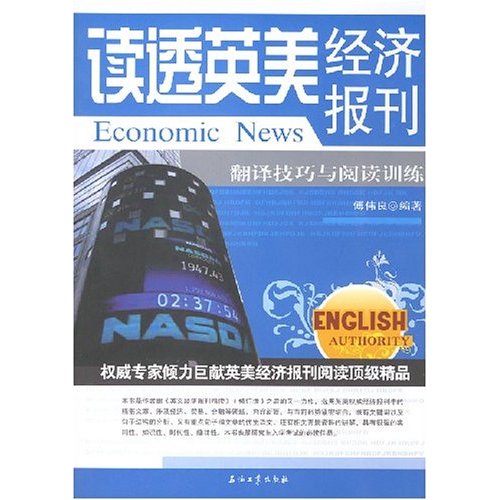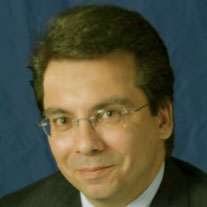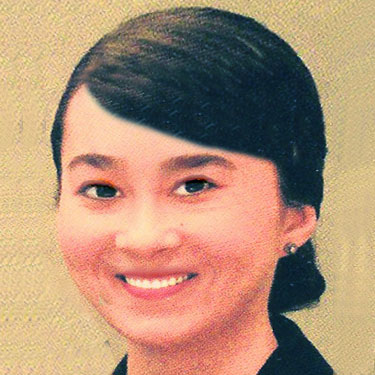英文病历(九)-食欲,体重
作者:古龙 2009-07-04




语际翻译公司 转载请注明https://www.scientrans.com
∗本栏目部分文章内容来自互联网,部分已经过本站编辑和整理,如有版权事宜请联系Email/MSN jesczhao@hotmail.com
九、食欲 Appetite, 体重 Weight
(1)他说他胃口一直很好,什么东西都能吃。
He stated that he had always had a good stomach and could eat anything.
※食欲良好
-过食 eat too much ( to excess ; heavily) ; overeat; be intemperate in eating
-吃得多 (胃口大开地吃) eat profusely ( with a good appetite)
-保持良好食欲 retained an excellent appetite
-食欲增进 one's appetite improved
-食欲有节制 (食欲旺盛,贪食不饱) have a moderate (good, enormous) appetite
-无食欲障碍 one's appetite is undisturbed
-食不过饱的人 a moderate ( spare; light) eater
-过饱的人 a heavy (great; hard) eater
-食量 capacity for eating
ex1:他的食欲良好,但他平常的吃食习惯,由于口里伤处而中断。
His appetite was good, but the sore place in his mouth interrupted his usual eating habit.
ex2:他对食物有无法控制的喜好,用膳时喝很多水。
He had an uncontrollable mania for food, drinking water freely with the meals.
※无食欲
-无食欲 have no (little) appetite ( for food); lose ( have no) relish for one's food; loss ( lack) of appetite; loss of interest in food
-发觉( 有点) 食欲不振 noted ( minimal) anorexia
-食欲不定( 无食欲障碍) one's appetite is variable ( undisturbed)
-食欲反复无常 have a capricious appetite
-食欲不佳 have a poor (feeble; weak; delicate) appetite
-胃口变得更加不好 became more anorexic
-失去平常的食欲 lose one's usual appetite
-食欲减退 appetite decreases ( reduces; declines; falls off)
-吃得少 eat poorly (sparingly) ;take little food; poor food intake
-不想吃 be disinclined to eat
-取食不规则 eat irregularly
-停吃 cease eating
-促进食欲 improve (stimulate; sharpen; whet) the appetite
ex1:他无胃口,只吃了一点点东西。
He had no appetite and only picked at the food.
ex2:他的胃口不如以前,甚至以前喜欢吃的也不例外。
Meals and drinks taste no more as before, and he is indifferent even to his favorite food.
※未进食物医学全.在线提供
ex1:他整天没有吃什么,只吃几口稀饭。
He eats nothing for a whole day, but he takes some mouthfuls of rice gruel.
ex2:他从前天中午起,就没有吃东西。
He has tasted no food since noon the day before yesterday.
(2)他诉说非常口渴,但一点食欲也没有。
He complains of his thirst hard to release, while he has absolutely no appetite.
※口渴
-口渴 be (feel) thirsty
-口一直很渴 continue to have excessive thirst
-喝大量的水 drink water generously
-对碳酸饮料发生不寻常的爱好 develop an unusual craving for carbonated beverages
-要~少喝茶水 be advised to decrease one's tea drinking
(3)食欲正常,但体重却在一年之内减轻了4公斤。
In spite of the normal appetite, he lost 4 kg. in weight over a period of one year.
※体重减轻
-住院时体重 admission weight
-最高(最低)体重 maximal ( minimal) weight
-体重减少,但未知多少 weight loss of undetermined amount
-通常在夏季体重减轻 usually lose weight in the summer months
-体重以惊人的速度减少 lose weight with alarming speed
-体重始终一样 weight remained stationary (steady)
-体重不变 weight is stable ( unchanged)
-体重维持不变 weight is well-maintained
-体重老是50公斤 one's weight is constant ( maintained) at 50 kg.
-虽然食量增加,体重却减轻了6公斤 lost 6 kg. in spite of increased intake of food
ex1:他在上2个月内,体重减轻了8公斤。
He developed weight loss totalling 8 kg. in the previous 2 months.
ex2:他的胃口变得很大,食物热量增加2倍,但体重却减轻了10公斤。
His appetite became ravenous and his caloric intake doubled, yet he lost 10 kg.
exercise3
1.他想不起患过什么病。
2.他自幼健康,不曾患过大病。
3.他没患过白喉。
4.他否认在军队时,得过性病。
5.他说幼年时一直闹病。
6.他除患高血压一年外,无其它病诉。
7.他在生后6个月,种过痘。
8.他因身体虚弱,容易生病。
9.在1957年,他因治疗胸膜炎,住过院。
10.他在开刀后5天,便出院了。
11.他因阑尾炎开过刀。
12.去年他患了肾脏炎,但经过良好,现已痊愈了。
1.
a)He could not remember (recall) what disease he has ever had.
b)He had no memory of ever having had any disease.
c)He had no recollection of any previous disease.
2.
a)He has been thoroughly sound since his childhood, and has never had any serious disease.
b)He has been in good health from his childhood and has had no history of serious disease.
c)He has been healthy without any serous disease since his childhood.
3.医学全在.线提供
a)He had no past (previous; prior) history of diphtheria.
b)His P.H. showed no (did not show) diphtheria.
c)He did not have a history of diphtheria.
d)There was no diphtheria in his P.H.
4.
a)He denied that he contracted V.D. during his military service.
b)He denied contracting V.D. while he was in the army.
5.
a)He said that he was often ill in his childhood.
b)He said that during( throughout) his childhood he was always troubled by disease.
6.
a)He states that there is no complaint other than hypertension lasting for a year.
b)He is free from any disease except for one year history of hypertension.
c)Apart from hypertension of one year's duration he is in good health.
7.
a)He was vaccinated (inoculated) against smallpox when he was six months old.
b)He received( took; underwent) a smallpox vaccination at six months of age.
8.
a)Because he is frail, he is prone to illness.
b)He is delicate and susceptible to disease.
c)He is liable (predisposed) to get sick, because of physical weakness.
9.
a)He was admitted to the hospital for treatment of pleurisy in 1957.
b)He was hospitalized for pleurisy in 1957.
c)In 1957 he went to the hospital to have his pleurisy treated.
10.医.学 全在.线提供www.med126.com
a)Five days after an operation, he left the hospital.
b)He was discharged( dismissed) from the hospital on the 5th postoperative day.
c)He left the hospital 5 days after he underwent an operation.
11.
a)His P.H. revealed an appendectomy.
b)He had (underwent) an appendectomy.
c)He had an operation ( a surgery) for appendicitis.
d)He was operated for appendicitis.
e)He gave a P.H. of appendectomy performed.
12.
a)He suffered from nephritis last year, but its course was uneventful and now he was cured perfectly.
b)He had nephritis last year, and after favorable course he made a full (complete) recovery and regained his health.
c)Last year he developed nephritis which ran an uneventful course and he recovered completely with no sequela ( residual).
来源:医学全在线
- 评论
- seme:文章内容文章内容文章内容文章内容文章内容文章内容文章内容文章内容文章内容 章内容文章内容文章内容文章内容文章内容
- seme:文章内容文章内容文章内容文章内容文章内容文章内容文章内容文章内容文章内容 章内容文章内容文章内容文章内容文章内容

- 医生护士英语会话(11):西药(2)
2009-6-24 0:18:19 - 病人:早上好,大夫。 Patient: Good morning, doctor. ...
- 医生护士英语会话(10):西药(1)
2009-6-24 0:15:35 - 病人:我严重感冒。另外,还伴有头疼。请问我应该服用些什么药呢? Patient: I have...
- 第四届IEEE生物信息与生…
2009-6-30 19:42:01 - 基本信息 主办单位: 四川大学,IEEE生物医学工程协会(EMBS) 承办单位 开始日期 2010/06/18 结束日期 截稿日期 2009/1...
- 第九届全国光电技术学术…
2009-6-30 19:35:58 - 基本信息主办单位: 中国宇航学会光电技术专业委员会承办单位 开始日期 2009/11/01结束日期 截稿日期 2009...
















